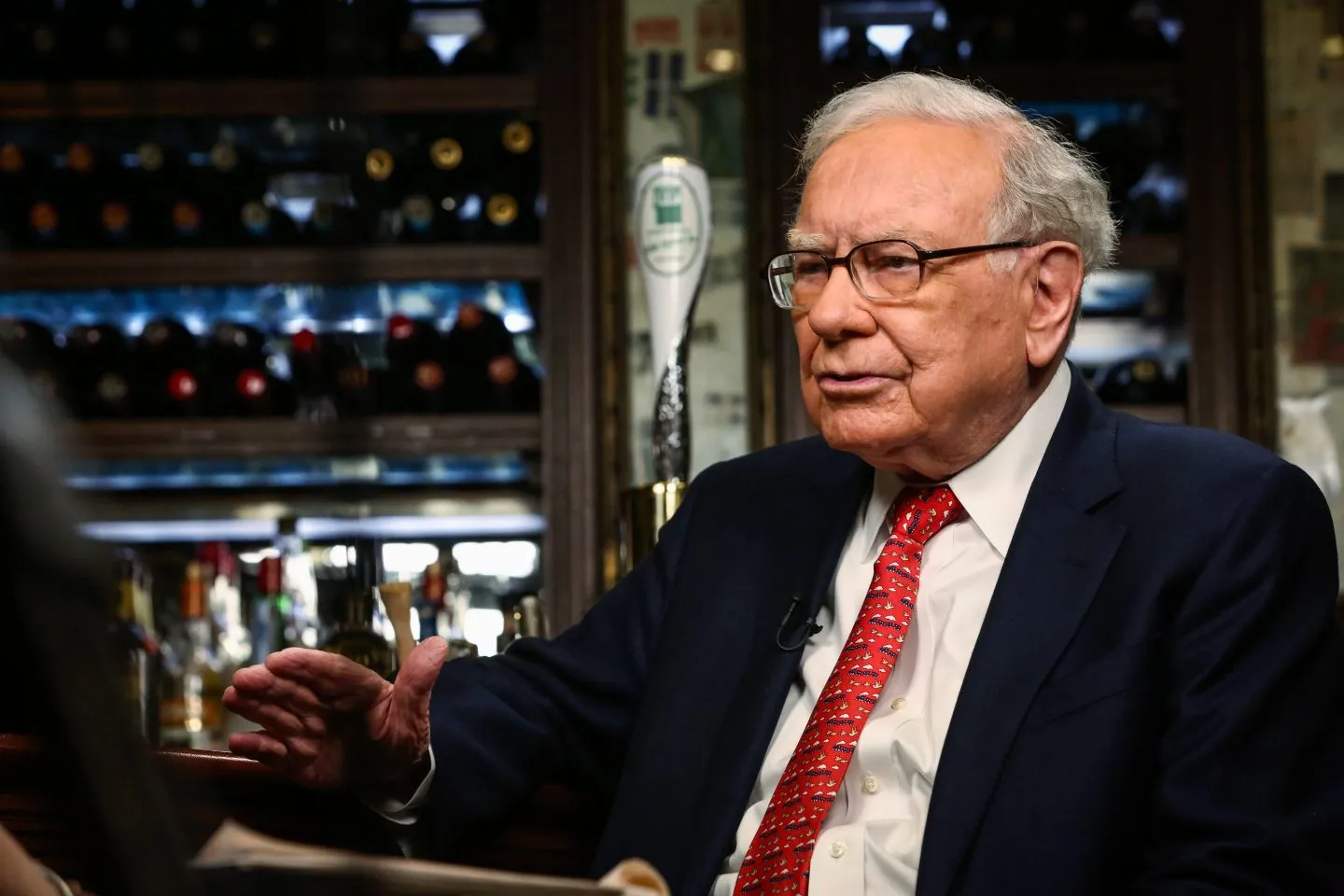Berkshire Hathaway Inc. reported a record-breaking cash reserve of $347.7 billion at the close of the first quarter, as CEO Warren Buffett kept trimming the company’s stock holdings while finding it increasingly difficult to identify new investment opportunities.
The company's first-quarter operating earnings dropped 14% compared to the same period last year, falling to $9.6 billion. These results were released in a statement on Saturday, just ahead of Berkshire’s widely watched annual shareholder meeting in Omaha, Nebraska.
The surge in cash reflects Buffett’s continued caution in the current market environment. While Berkshire remains one of the most influential investors in the world, the firm has adopted a conservative stance, opting to sell more equities than it buys amid rising valuations and economic uncertainty. The difficulty in finding attractively priced assets has led the conglomerate to sit on more cash than ever before, breaking its previous record.
Despite the dip in operating earnings, which include profits from businesses such as insurance, railroads, energy, and manufacturing, the company's financial foundation remains strong. Buffett’s strategy of holding onto significant cash reserves gives Berkshire the flexibility to seize major opportunities when markets become more favorable.
Berkshire’s insurance operations, one of its core business segments, continued to perform reliably, though earnings were softer than in previous quarters. Meanwhile, its railroad business, BNSF Railway, and the energy division also saw pressure from a slower economy and higher costs, contributing to the overall earnings decline. While some segments within the conglomerate managed steady performance, the cumulative impact of slower economic activity weighed down the total.
In terms of investments, Buffett and his team were once again net sellers of equities in the quarter, a pattern that has persisted for several quarters now. While Berkshire has made some targeted purchases, such as boosting its stake in certain Japanese trading companies, it has largely refrained from making significant new U.S. investments. This cautious approach underscores Buffett’s belief that many companies are currently overvalued and not worth buying at current prices.
Berkshire also continued its share buyback program, repurchasing $2.6 billion of its own stock during the quarter. Though this figure is slightly lower than the $2.8 billion it spent in the final quarter of 2023, buybacks remain a favored tool for returning capital to shareholders when external investment opportunities are limited. Buffett has long emphasized that buybacks are a sound use of capital when shares are trading below intrinsic value.
The record cash hoard has sparked speculation about whether Buffett might be preparing for a large acquisition or waiting for a broader market correction to deploy significant capital. In the past, Berkshire has made headline-grabbing purchases when other investors were fearful, including the 2015 acquisition of Precision Castparts and the 2008 investments in Goldman Sachs and General Electric during the financial crisis. But in recent years, suitable deals have proven elusive.
Buffett’s investment discipline is rooted in patience, and he has repeatedly said he won't chase overpriced deals simply to put cash to work. Instead, he prefers to wait for moments of opportunity, even if that means holding cash for extended periods. This philosophy may frustrate some investors hoping for more aggressive action, but it’s consistent with the approach that has served Berkshire well for decades.
The annual shareholder meeting, often dubbed “Woodstock for Capitalists,” brought thousands of shareholders to Omaha once again this year. It serves as a platform for Buffett and Vice Chairman Greg Abel to offer insights on the company’s operations, investment outlook, and broader economic themes. With longtime partner Charlie Munger having passed away in late 2023, this year’s gathering also marked the first without his presence, a noticeable change for many longtime followers.
One topic that drew considerable attention during the meeting was succession planning. With Buffett now in his 90s, investors are increasingly focused on how the company will be managed in the years ahead. Greg Abel, who oversees all non-insurance businesses and is Buffett’s designated successor, continues to play a more visible role in Berkshire’s affairs, reassuring shareholders that the company is in steady hands for the future.
In sum, Berkshire Hathaway’s first-quarter results highlighted both the strength and the restraint that define Buffett’s leadership. The company continues to generate billions in profit, maintain a fortress-like balance sheet, and resist the temptation to invest hastily. With a record cash reserve and disciplined management, Berkshire remains well-positioned to capitalize when opportunities eventually emerge.

Subscribe to our newsletter!
As a leading independent research provider, TradeAlgo keeps you connected from anywhere.








